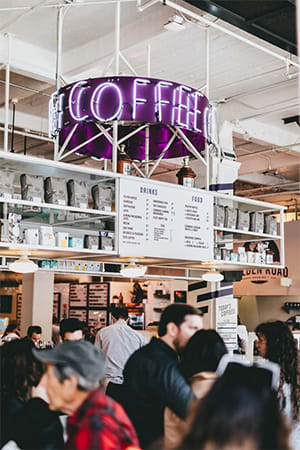5
Mathematicians Are Refusing To Work With The Police
Lots of groups are cutting ties with the police like Hollywood, pro-athletes, and uh ... mathematicians? Surprisingly, mathematicians work with the police a lot, helping them with things like data work and statistical modeling. And many of them are absolutely done with it. 1,500 number nuts (or "numbnuts" as they call themselves) signed an open letter calling for mathematicians to stop working with the police to examine algorithms that directly impact people's lives (like, say, facial recognition systems), and to add ethics to data science courses.
![W3lcom3 2 th3 R3sist4nc3.]() Science in HD/Unsplash"W3lcom3 2 th3 R3sist4nc3."
Science in HD/Unsplash"W3lcom3 2 th3 R3sist4nc3."
The letter is particularly against "predictive policing." That's like the pre-crime unit in Minority Report, but way less cool: it's just using statistics to predict where crimes will happen next, based on where they've been happening so far. Predicting crime lets police departments put officers there so they'll be quickly available, or so the theory goes. But in practice, since cops largely arrest people of color, any system that makes predictions based on that arrest data is going to put innocent BIPOC in the crosshairs and let off white criminals. That's one reason why Tarik Aougab, a math professor at Haverford College who co-wrote the letter, says that, "Collaborating with police in any capacity contributes to white supremacist violence and oppression." And you know things are pretty serious when even mathematicians are saying that.
The letter is also serious about the need to make sure math models that affect people's lives are built ethically. It calls for public audits of algorithms that do things like hiring employees, sentencing convicts, or identifying criminals (with facial recognition) -- all of which have been criticized as biased and inaccurate. It also stresses that data science courses should teach students about the ethics of using various mathematical and statistical tools (that's very common in, say, biology or engineering, but not math). All in all, the letter-writers are saying: the answers you get from applied math depend on the assumptions you start with, and they're not necessarily "pure" or "objective."
The whole thing got broad support in the math world, too. It's been signed by mathematicians working both in academia and the corporate world, and it's getting published in Notices of the American Mathematical Society. So, feel free to give the next mathematician you meet the secret Resistance (social distancing) head nod.
4
Dark Web Criminals Are Refusing To Profit Off The Pandemic
If you've heard of the dark web, you probably imagine it as a wretched hive of scum and villainy. And that's accurate -- after all, it's designed as a place where basically no-one can trace your real identity, so criminals use it all the time. But apparently, even criminals have something like a conscience, at least when a major global pandemic hits.
For example, on some forums for buying and selling stolen website accounts, people have been telling each other to take care of their elderly family members, and they've been expressing solidarity with the people of Italy ("It's a US, Mario!"). And on another criminal forum, when a rando asked for advice on how best to take advantage of people in all this, others begged him not to (it's unclear whether that awoke the last sliver of conscience in him.)
 Nathan Dumlao/UnsplashNow if only all businesses were as careful as those dealers.
Nathan Dumlao/UnsplashNow if only all businesses were as careful as those dealers.






 Science in HD/Unsplash
Science in HD/Unsplash Zac Ong/Unsplash
Zac Ong/Unsplash Thom Holmes/Unsplash
Thom Holmes/Unsplash Noah/Unsplash
Noah/Unsplash